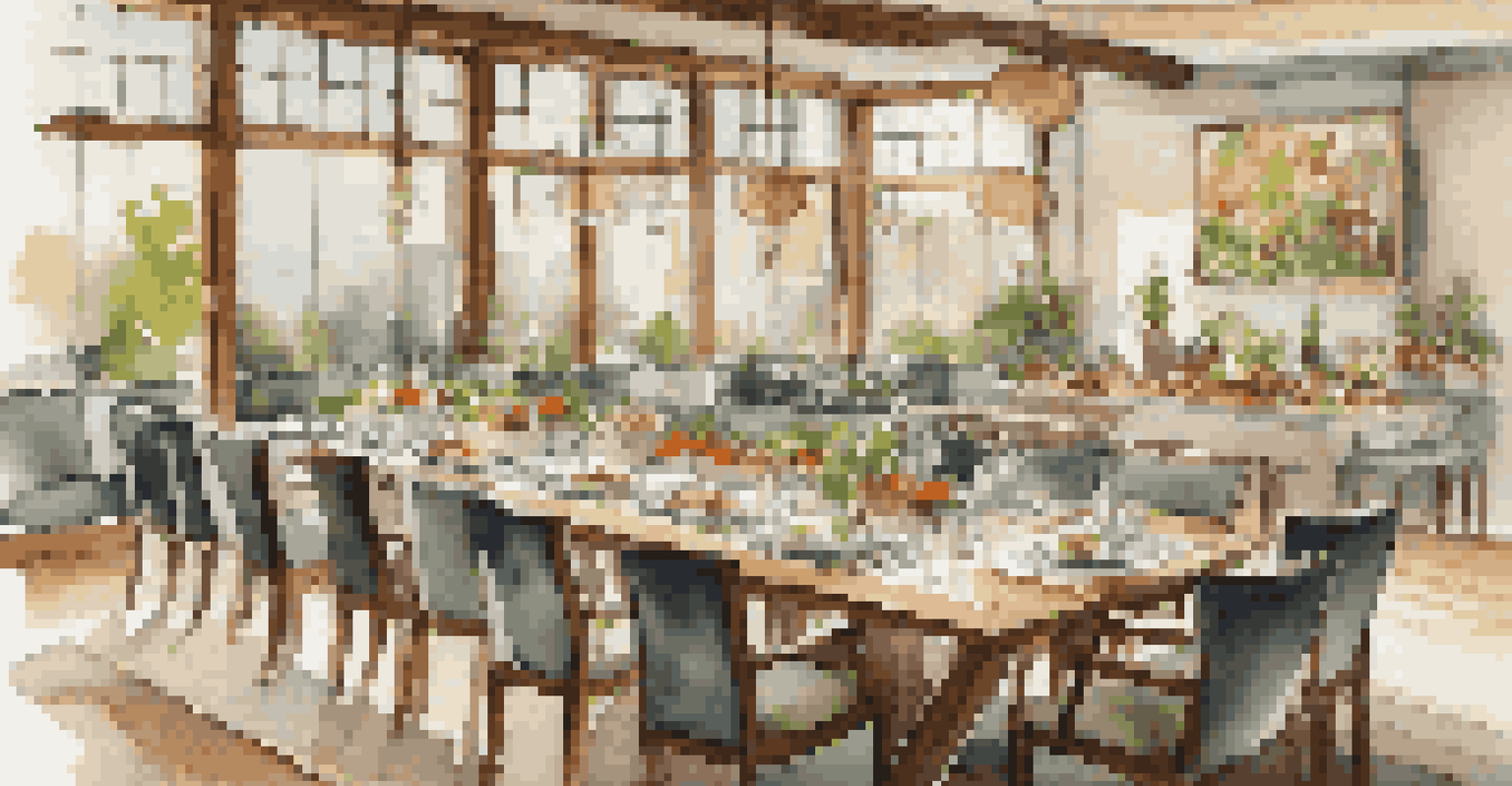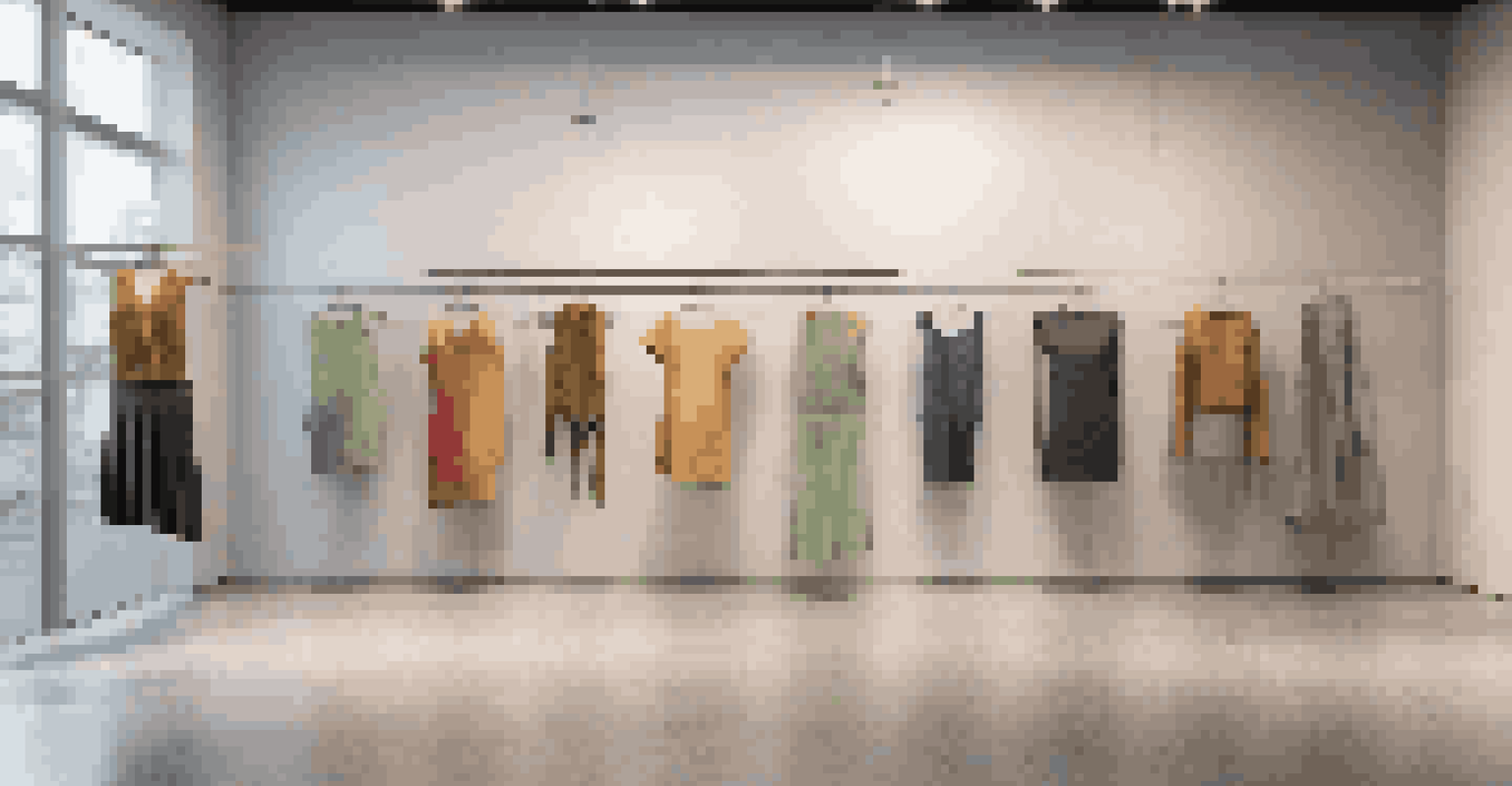Eco-Friendly Luxury: Innovations in Sustainable Technology

The Rise of Eco-Friendly Luxury Brands
In recent years, a fascinating shift has occurred in the luxury market. More brands are embracing eco-friendliness, recognizing that today’s consumers value sustainability as much as opulence. For instance, high-end fashion houses are increasingly opting for organic materials and ethical labor practices, showcasing that luxury and responsibility can go hand in hand.
Sustainability is no longer a choice; it's a necessity for luxury brands to thrive.
This trend isn't just about appealing to environmentally conscious buyers; it's also about redefining luxury itself. As consumers become more informed about the environmental impact of their purchases, they are seeking out brands that reflect their values. Brands like Stella McCartney have pioneered this movement, proving that style doesn’t have to compromise the planet.
Moreover, the rise of eco-friendly luxury brands has opened up new markets and opportunities. By innovating in sustainable practices, these brands not only attract loyal customers but also inspire others to follow suit, fostering a culture of sustainability within the luxury sector.
Innovative Materials Driving Sustainable Luxury
One of the most exciting aspects of eco-friendly luxury is the development of innovative materials. Designers are now using alternatives like Piñatex, made from pineapple leaves, and mushroom leather, which significantly reduce the carbon footprint compared to traditional leather. These materials not only look stylish but also tell a story of sustainability.

Additionally, recycled materials are making waves in luxury fashion. Brands like Rothy's use recycled plastic bottles to create chic footwear, transforming waste into desirable products. This approach not only lessens the strain on natural resources but also resonates with consumers who prioritize environmental impact.
Luxury Meets Sustainability
Eco-friendly luxury brands are redefining what opulence means by prioritizing sustainable practices and materials.
These innovations are not limited to fashion; they extend to luxury automobiles as well. Companies like Tesla are leading the charge, showcasing electric vehicles that offer both luxury and sustainability. The shift towards eco-friendly materials across various industries is a clear indication that sustainable luxury is here to stay.
Smart Technology Enhancing Eco-Friendly Luxury
The integration of smart technology in luxury products is another key innovation boosting sustainability. Smart thermostats in luxury homes, for example, optimize energy use, significantly reducing waste and costs. This blend of luxury and technology not only enhances comfort but also promotes a sustainable lifestyle.
Luxury is about being comfortable and having a sense of responsibility for the world we live in.
Moreover, luxury brands are utilizing tracking technology to ensure ethical sourcing of materials. By providing transparency, consumers can make informed choices about the sustainability of their purchases. This level of accountability is becoming a hallmark of responsible luxury brands.
As technology advances, the potential for eco-friendly innovations expands. From energy-efficient appliances to AI-driven fashion recommendations, smart technology is reshaping what it means to indulge in luxury without compromising the planet.
Sustainable Practices in Luxury Hospitality
Luxury hotels and resorts are also embracing sustainable practices, creating eco-friendly experiences for their guests. Many establishments now incorporate energy-efficient systems, such as solar panels and rainwater harvesting, to minimize their environmental impact. This not only enhances the guest experience but also sets a standard for the hospitality industry.
Additionally, luxury resorts are increasingly offering organic and locally sourced dining options. This not only supports local farmers but also reduces the carbon footprint associated with transporting food. Guests can indulge in gourmet meals while knowing they are contributing to sustainable practices.
Innovative Materials in Fashion
The use of alternatives like Piñatex and recycled materials is transforming the luxury fashion industry towards sustainability.
These efforts are being recognized, with many luxury hotels receiving eco-certifications. As travelers become more environmentally conscious, the demand for sustainable luxury hospitality options is on the rise, encouraging more establishments to adopt green practices.
The Circular Economy in Luxury Fashion
The concept of a circular economy is gaining traction in the luxury fashion space, where brands are designing products with longevity in mind. This approach encourages recycling and upcycling, allowing consumers to enjoy high-quality items while minimizing waste. For instance, brands are offering repair services to extend the life of their products, ensuring they remain in circulation longer.
Moreover, rental and resale markets are thriving, with luxury items being shared rather than discarded. Platforms like Rent the Runway allow consumers to wear designer pieces without the full financial commitment, promoting a more sustainable way to enjoy luxury fashion. This shift not only reduces waste but also democratizes access to high-end style.
The circular economy is redefining ownership in the luxury market, encouraging consumers to think critically about their purchases. This move towards sustainability is not just a trend; it signifies a fundamental change in how luxury brands operate and engage with their audience.
Eco-Friendly Luxury in Home Design
Sustainable luxury is making its way into home design, with eco-conscious architects and designers creating spaces that are both elegant and environmentally friendly. From using reclaimed wood to incorporating energy-efficient systems, homeowners can enjoy beautiful interiors without compromising their values. This blend of aesthetics and sustainability is gaining popularity among affluent buyers.
Additionally, luxury builders are focusing on smart home technology to enhance energy efficiency. Features like automated lighting and climate control not only elevate the living experience but also contribute to significant energy savings. These innovations are proving that luxury can coexist with eco-friendliness in the home environment.
Smart Technology for Eco-Living
Integrating smart technology in luxury homes enhances energy efficiency while maintaining high standards of comfort and style.
As more individuals seek sustainable options for their living spaces, the market for eco-friendly luxury homes is expanding. This trend is not only beneficial for the environment but also adds a unique charm and personality to each home, making sustainability an integral part of luxury living.
The Future of Eco-Friendly Luxury
Looking ahead, the future of eco-friendly luxury appears bright. As awareness of environmental issues grows, more brands are likely to innovate and prioritize sustainability. This evolution is not just a passing trend; it’s becoming a core value that defines luxury in the modern world.
Furthermore, collaboration between luxury brands and sustainability experts is essential for driving meaningful change. By working together, they can develop new technologies and practices that revolutionize the industry. This collaboration will pave the way for a future where luxury is synonymous with responsibility.

Ultimately, the convergence of luxury and sustainability is not just beneficial for the planet; it also enriches the consumer experience. As eco-friendly luxury continues to flourish, it will inspire a new generation of consumers to embrace a lifestyle that values both elegance and environmental stewardship.